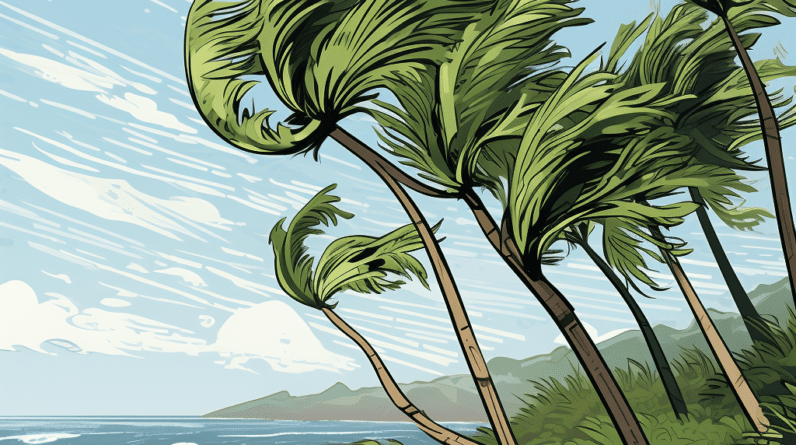
Debunking the myth that Grenada is outside the hurricane zone.
Let’s get one thing straight right off the bat:
Grenada is not immune to hurricanes. You may have heard otherwise, but it’s essential to kick that myth to the curb.
Grenada is a Caribbean paradise, with its azure waters and white-sand beaches, but it’s not outside the hurricane zone.
Understand this crucial fact before you pack your bags.
Who this guide is for

So, who should be reading this guide?
If you’re someone who’s captivated by the allure of the Caribbean, specifically Grenada, and you’re also concerned about safety—especially during the hurricane season—then you’ve come to the right place.
This guide is tailor-made for you.
This Guide’s Purpose:
Here’s what we aim to do:
Arm you with accurate, indispensable information so you can make informed decisions about your Grenada trip.
We’re not just talking about which beaches to visit or what foods to try—though those are great too.
This guide is all about understanding Grenada’s hurricane risks and how you can prepare for them. Safety first!
Brief Overview:
So what can you expect to learn here?
You’ll get a crash course on what the “hurricane belt” really means, and where Grenada stands in relation to it.
We’ll also dive into the history of hurricanes that have swirled their way through this beautiful island nation.
But we won’t stop there.
This guide will break down essential terms like ‘hurricane watch’ and ‘hurricane warning,’ and arm you with practical tips on preparing for a hurricane.
Consider this your one-stop guide for navigating Grenada safely and wisely, especially during the hurricane season.
Buckle up; you’re in for an enlightening ride!
Understanding the Hurricane Belt
What is the “hurricane belt” and why it matters.
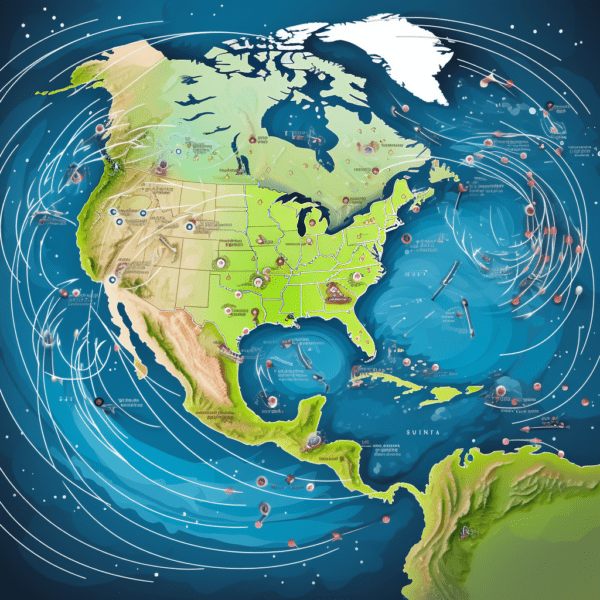
First things first, let’s talk about what this “hurricane belt” thing really is.
Imagine a zone in the Atlantic Ocean where hurricanes like to hang out.
This area stretches from the west coast of Africa all the way to the eastern shores of North America.
It’s typically between 10 and 20 degrees north latitude. Hurricanes are born here, grow up, and make their way through the Atlantic, wreaking havoc on lands they encounter.
Why should you care?
If you’re planning to go to a Caribbean island like Grenada, knowing its place within the hurricane belt can drastically affect your travel plans.
Knowledge is power.
Grenada’s Position within the hurricane belt.
Now, where does Grenada fit into this picture?
It’s time to burst the bubble: Grenada is within the hurricane belt.
Yes, you read that right.
Situated at about 12 degrees north latitude, Grenada isn’t on the outskirts; it’s right in there.
So if you’ve been operating under the assumption that Grenada is magically protected from hurricanes, it’s time to let that go.
This island isn’t an exception to the rule; it’s part of the zone.
Grenada’s proximity to the equator and hurricanes.
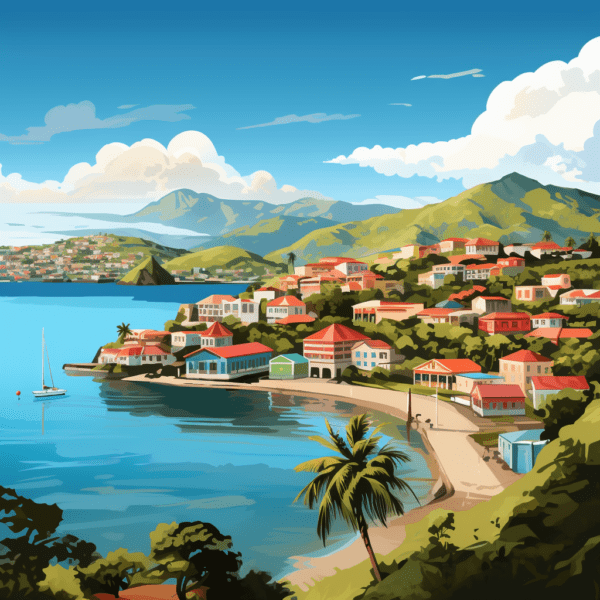
“But wait,” you might be thinking, “Grenada is close to the equator, so it’s safer, right?”
Partially true, but don’t let your guard down.
While it’s correct that Grenada’s proximity to the equator makes it less likely to be hit by hurricanes, it’s not a guarantee.
Hurricanes generally need warm water to form and sustain themselves, but they also like a bit of a spin, something the equator’s minimal Coriolis effect doesn’t offer as much.
In simpler terms: being close to the equator makes Grenada less attractive to hurricanes, but not entirely off-limits. Less likely? Yes.
Immune?
Absolutely not.
There you have it. Part I should arm you with a solid understanding of the hurricane belt and Grenada’s place within it.
Keep this information in your back pocket; it’s essential for making smart decisions about your travel.
Next up, we’ll delve into the historical data on hurricanes in Grenada, and trust me, you’ll want to know about it.
History of Hurricanes in Grenada
Hurricanes that have affected Grenada since 1950.
Let’s get into some numbers and names, shall we?
You might be shocked to learn that since 1950, Grenada has had its share of hurricanes.
We’re not talking about a handful; we’re talking about seven impactful storms: Janet (1955), Flora (1963), Alma (1970), Allen (1980), Ivan (2004), Emily (2005), and Omar (2008).
Each has left a mark on the island in one way or another.
Knowing this history isn’t just trivia; it’s vital for your awareness and preparedness.
Case Study: The impact of notable hurricanes like Omar, Ivan, etc.
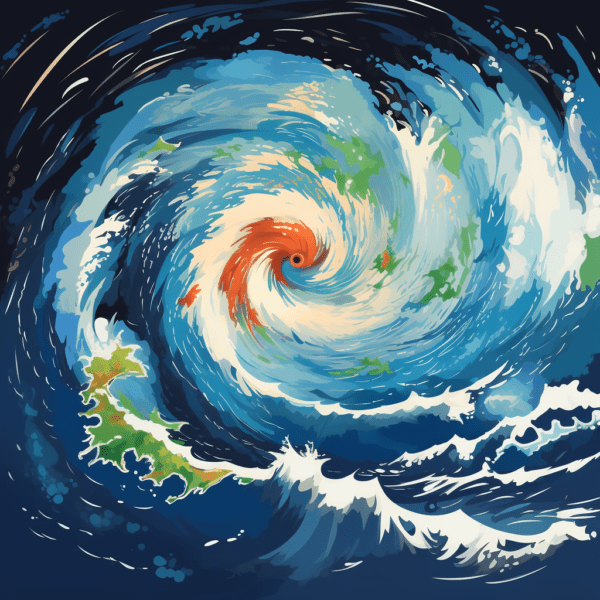
Let’s dive deeper into a couple of these, shall we?
Take Hurricane Ivan for example, a Category 5 mammoth that struck in 2004.
It damaged nearly 90% of the island’s homes and claimed 39 lives.
Then there’s Omar in 2008, a Category 3 storm that glided near Grenada.
Even though it didn’t make a direct hit, it caused damage and power outages.
These aren’t just stories or statistics; these are real-life events that affected real people.
Understand this: when a hurricane hits, the impact can be devastating.
Why ignoring this history could create a false sense of security.
This is crucial.
Ignoring history could make you complacent. And complacency? That’s dangerous.
A sense of “it won’t happen to me” can set in, leading you to skimp on precautions.
That’s how you get caught off guard.
Knowing Grenada’s history with hurricanes will equip you to make more informed decisions.
Let’s be clear: a past without hurricanes doesn’t guarantee a future without them. History is a lesson, not a fortune teller.
Now, you’re equipped with some hard facts and gripping stories about hurricanes in Grenada.
As beautiful as the island is, it has its risks, and it’s better to be an informed traveler than an unprepared one.
Next, we’ll shift gears and get into the nitty-gritty of how to prepare for these natural disasters.
Spoiler alert: it’s more than just having an umbrella.
Important Terms to Know
Hurricane Watch vs. Hurricane Warning: Definitions and Implications.
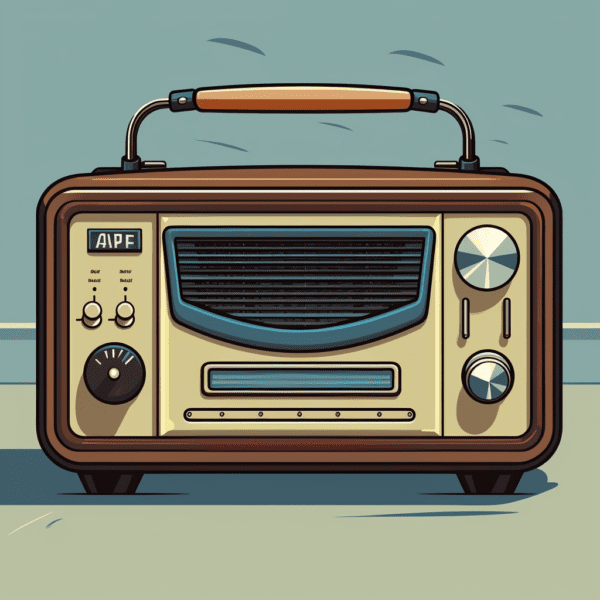
So, you’re in Grenada, and you hear the words “hurricane watch” or “hurricane warning” on the news.
What now?
First, don’t panic.
But do listen up.
A “hurricane watch” means that hurricane conditions are possible within the next 48 hours.
It’s a heads-up. On the flip side, a “hurricane warning” is more urgent.
It means that hurricane conditions are expected within the next 36 hours. This is not a drill.
Understanding these terms is crucial.
They’re not just weather jargon; they’re your cues for action. When a watch is issued, start reviewing your emergency plans.
When a warning comes up, it’s time to execute those plans. Fast.
Local Alerts and Media: How to Stay Updated with the Most Current Information During Your Stay.
Staying informed isn’t just smart; it’s a survival tool.
You should have a plan for how to get the latest information. Local radio? Check. Social media updates? Absolutely.
And let’s not forget reliable websites like the National Hurricane Center.
Most hotels and resorts will broadcast emergency information, but don’t rely solely on them.
Pro tip: Download local weather and emergency alert apps on your smartphone.
Also, bookmark websites that are regularly updated during weather events.
But here’s the kicker: not all sources are created equal.
Stick with reputable outlets. Sensational stories and rumors can spread like wildfire, but you need the facts. No fluff.
Now you know the terms to listen for and where to find accurate, real-time information.
That’s half the battle right there.
Keep this in mind:
The more informed you are, the better you can react if Mother Nature decides to crash your vacation plans.
In our next part, we’ll get you geared up—literally—for what to do if a hurricane does decide to make an appearance.
Preparing for a Hurricane
Disaster Kit: What to Include
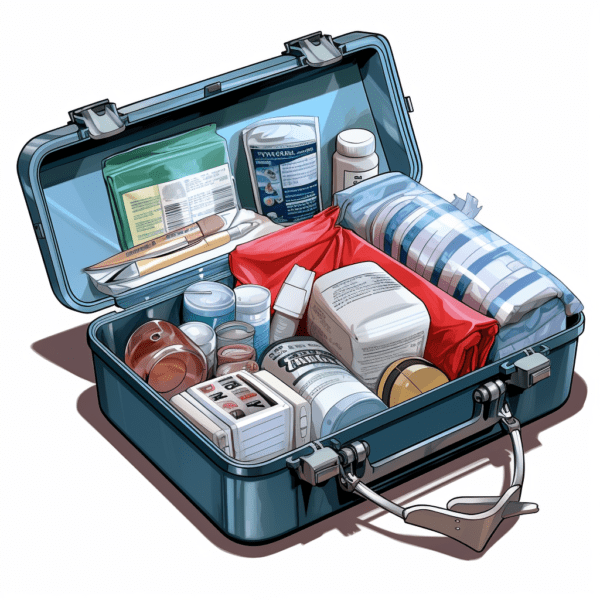
Let’s get real—you need a disaster kit. No arguments.
Think of it as your survival go-bag. So, what goes in there?
Basic stuff like water, non-perishable food, and a first-aid kit are no-brainers.
But also pack in a flashlight, extra batteries, and essential medications.
Don’t forget cash; ATMs won’t work if there’s no power.
Make sure you’ve got important documents in a waterproof container.
Throw in some local maps as well. GPS might fail you.
The key is to be prepared for the worst while hoping for the best.
Assemble this kit the moment you arrive, or better yet, bring what you can from home.
This isn’t a to-do list item to be delayed. Do it now.
Evacuation Plans: Knowing Your Route and Shelter Options
Knowledge is power, and knowing where to go can be a lifesaver.
You need an evacuation plan.
If you’re staying at a hotel, ask the staff about their emergency procedures.
They usually have a plan, and you need to know it.
In case you’re staying at a local rental, talk to your host. Where’s the nearest safe place?
What’s the best evacuation route?
Consider this:
Roads could be jammed or blocked. So having multiple routes is smart.
Make sure everyone in your group knows the plan. Write it down. No excuses.
Secure Your Belongings: Steps to Protect Your Personal Property
Alright, you’ve got your kit, you know where to go. What’s next?
Protect your stuff. Outdoor furniture? Bring it in or secure it. Windows? Shut ’em, lock ’em, and if you can, board ’em up.
Turn off and unplug any appliances that aren’t needed. Your safety is priority number one, but a few preventive steps can save you a lot of post-storm headaches.
Bottom line? Be proactive. Secure what you can, when you can.
Make your space a fortress against the elements. It won’t take long. But the peace of mind? That’ll last throughout your trip.
So there you have it. You’re not just prepared; you’re hurricane-ready.
Pack not just your sunscreen but also your common sense.
After all, paradise is best enjoyed with a dash of preparedness. Stay safe! 🌴⛑️
Cautionary Tips
Local Laws: Like the Illegality of Camouflage Clothing
You read that right. Camo is a no-go.
In Grenada, it’s illegal for civilians to wear camouflage clothing.
Authorities are serious about it, and the last thing you want is a run-in with the law during your tropical getaway.
Stick to floral prints and leave the military look at home. Easy enough, right?
Road Safety: Conditions of Roads and Tips for Driving
Driving in Grenada? Heads up! The roads can be narrow, winding, and not always in top shape.
If you’re renting a vehicle, opt for one with good traction. Always wear your seatbelt and watch the speed limit.
Local drivers may seem aggressive, but don’t get sucked into a high-speed chase on a winding road.
Slow and steady. Be particularly cautious when it rains; those roads can get slippery.
Currency: Understanding the Use of Eastern Caribbean Dollar vs. US Dollar
Money talks, so let’s talk money.
Grenada primarily uses the Eastern Caribbean Dollar, but U.S. dollars are also accepted at many places.
Still, it’s smart to keep some local currency on hand for small purchases or places that don’t accept U.S. dollars.
Don’t assume everyone takes plastic either. Cash is king here.
Health Concerns: Preventing Dengue, Proper Clothing, Mosquito Repellents, Etc.
Ah, the tropics—a paradise for you, but also for mosquitoes.
Dengue fever is a concern, so come prepared.
Use an insect repellent with at least 20% DEET.
Long sleeves and pants are also advisable, especially during dawn and dusk when mosquitoes are most active.
No joke.
Your health isn’t something to gamble on. Pack that bug spray.
Crime: Tips on Keeping Valuables Safe and Where to Avoid
Let’s talk safety. Grenada is relatively safe, but petty crime can happen anywhere.
Keep your valuables secure, use a hotel safe when available, and don’t flash expensive items around.
Be cautious in less frequented areas and avoid walking alone at night in unfamiliar places.
Common sense? Sure. But it bears repeating.
You’re not just a tourist anymore—you’re an informed traveler.
Keep these cautionary tips in your back pocket, and you’ll navigate Grenada like a pro.
Enjoy the spice island, but keep your wits about you.
Grenada In The Hurricane Zone Table
| Section / Subsection | Key Takeaways |
|---|---|
| Introduction | Grenada is in the hurricane belt; this guide is for safety-focused travelers to the Caribbean. |
| Part I: Understanding the Hurricane Belt | The hurricane belt is a geographical zone prone to hurricanes, and Grenada is part of it. |
| – Definition | The “hurricane belt” includes areas with a high likelihood of hurricanes. |
| – Grenada’s Position | Despite popular belief, Grenada is within the hurricane belt. |
| – Proximity to Equator | Grenada’s closeness to the equator makes it less susceptible, but not immune. |
| Part II: History of Hurricanes in Grenada | Awareness of past hurricanes like Omar and Ivan prevents a false sense of security. |
| – Comprehensive List | A list of hurricanes since 1950 that have affected Grenada. |
| – Case Study | Deep dives into the impacts of notable hurricanes. |
| – Importance | Ignoring history creates a false sense of security. |
| Part III: Important Terms to Know | Knowing the difference between a hurricane watch and warning is critical. |
| – Hurricane Watch vs. Hurricane Warning | A “watch” means possible danger, a “warning” means take immediate action. |
| – Local Alerts and Media | Stay updated with local news and emergency broadcasts. |
| Part IV: Preparing for a Hurricane | Disaster kits and evacuation plans are non-negotiable. |
| – Disaster Kit | Pack essentials like water, food, and first aid supplies. |
| – Evacuation Plans | Know your evacuation route and shelter options ahead of time. |
| – Secure Your Belongings | Secure personal property before evacuating. |
| Part V: Cautionary Tips | Pay attention to local laws and take preventive measures for health and safety. |
| – Local Laws | Camouflage clothing is illegal. |
| – Road Safety | Be aware of road conditions and drive cautiously. |
| – Currency | Eastern Caribbean Dollar is the local currency, but USD is often accepted. |
| – Health Concerns | Wear proper clothing and use mosquito repellents to prevent Dengue. |
| – Crime | Keep valuables safe and be cautious in certain areas. |
| Conclusion | Prioritize safety and preparedness for a wonderful Grenadian experience. |
Conclusion
Recap of the Key Takeaways

You made it to the end! High five! 🖐️
Let’s go over what you’ve learned. First off, Grenada is inside the hurricane belt.
Don’t let myths lull you into a false sense of security.
The island has seen its share of hurricanes, and it is crucial to know the difference between a hurricane watch and a warning.
Preparation is not optional; it’s mandatory. Also, we touched on some local laws and practical tips to keep you on the safe side.
Final Word: The Importance of Preparedness and Situational Awareness
Listen up. No one’s saying don’t go to Grenada. It’s a stunning destination with much to offer.
But it’s crucial to pack more than just your bathing suit and sunscreen.
Bring your brains, your awareness, and a readiness to act in case of emergencies. Your safety is in your hands. Be smart about it.
Continuously Monitor Weather Conditions and Follow Local Guidelines for a Safe and Enjoyable Trip to Grenada
Here’s your marching order: Stay updated.
Weather apps, local news, government advisories—use them.
Your dream vacation can quickly turn into a nightmare if you’re not careful.
Check the weather forecast frequently and adhere to any local guidelines or warnings. Safety first, fun comes next.
Sources and References
Ready for some further reading? Knowledge is power, and here’s where you can get more of it:
- National Hurricane Center: For the most current and reliable hurricane information.
- World Health Organization: Dengue Prevention: Comprehensive guide on how to protect yourself from Dengue.
- U.S. Department of State: Grenada Travel Advisory: For information on local laws and safety tips.
- XE.com: For current exchange rates and currency info.
And there you have it. You’re not just a tourist; you’re now a well-informed traveler. Use this information wisely, and Grenada will not just be a destination, but an experience you’ll cherish safely.



